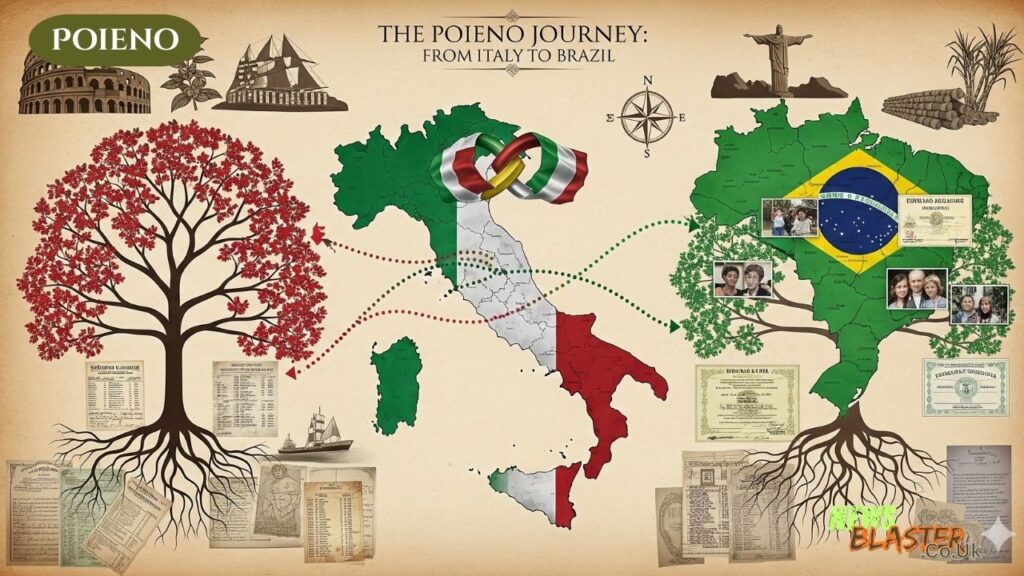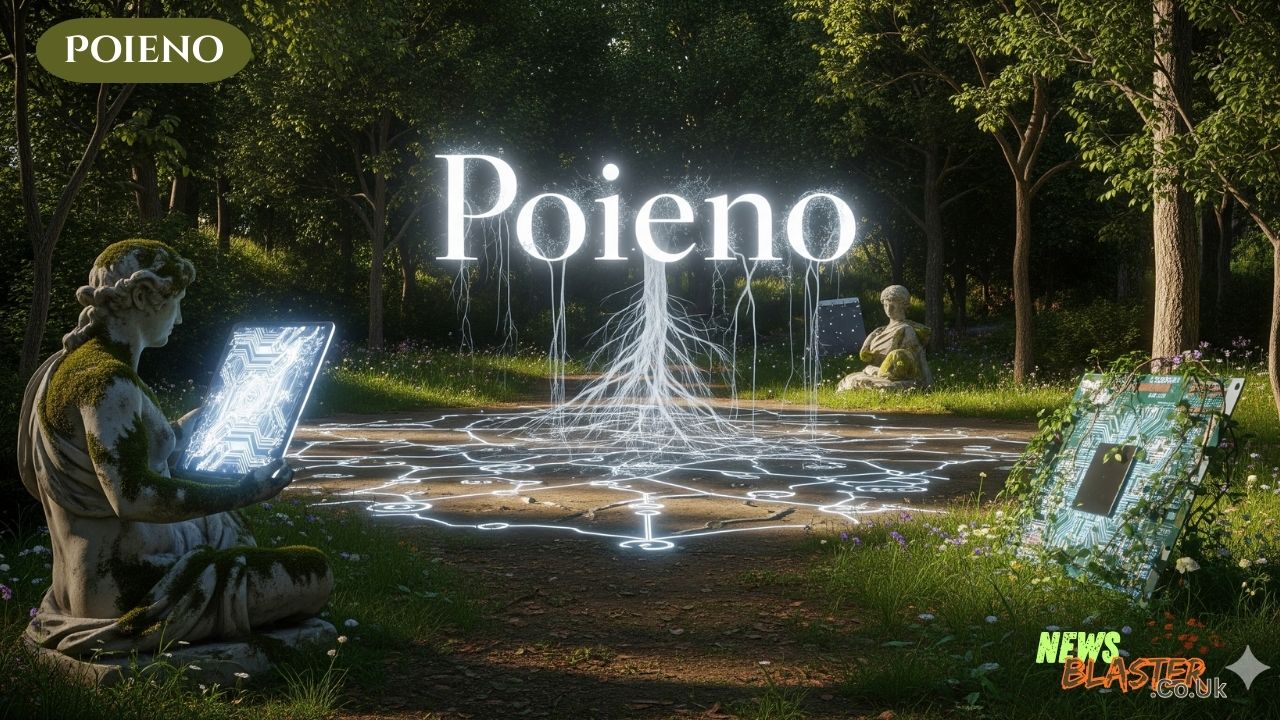Introduction
The word Poieno may sound unusual to many, but it carries a rich variety of meanings and contexts. From its roots in the Romanian language, where it connects to the idea of glades and clearings in nature, to its presence as a surname in countries like Brazil and Italy, Poieno has gained visibility across cultures, languages, and online platforms. In this article, we’ll explore the origins, linguistic background, cultural importance, notable individuals, and modern-day presence of Poieno.
The Romanian Origins of Poieno

Etymology and Linguistic Roots
The term Poieno finds its primary origins in the Romanian language, where it translates to a glade or clearing within a forest. This connection to nature reflects the country’s geographical and cultural landscape, which is characterized by dense woodlands and mountainous terrain. In Romanian, words related to natural features often carry historical significance, as communities traditionally identified locations by their physical characteristics.
The concept of a glade or clearing holds practical importance in Romanian rural life. These open spaces within forests served as gathering points, grazing areas for livestock, and sometimes as sites for seasonal settlements. The word itself evokes images of sunlight breaking through tree canopies, creating natural meadows that contrast with the surrounding woodland.
Geographic and Cultural Context
Romania’s rich natural environment has shaped its language and naming conventions. The prevalence of forest-related terminology in Romanian vocabulary reflects the nation’s deep connection to its landscapes. Glades and clearings were essential features in traditional Romanian life, providing spaces for agriculture, social gatherings, and navigation through dense forests.
This geographic context explains why such terms became embedded not only in common language but also in place names and family surnames. Communities living near notable clearings might adopt these features as identifiers, eventually transforming them into hereditary surnames passed down through generations.
Poieno as a Surname

Distribution Across Countries
As a surname, Poieno has spread beyond Romanian borders, appearing in various countries with distinct patterns of distribution. Brazil stands out as one of the primary countries where this surname appears, likely due to historical immigration patterns from Europe to South America during the late 19th and early 20th centuries.
Italy also shows presence of the Poieno surname, which may reflect either independent linguistic evolution or migration connections between Romania and Italy. Both countries share Latin-based languages and have historical ties through the Roman Empire’s influence in the region.
Cultural Significance in Brazil and Italy
In Brazil, surnames of European origin carry stories of immigration and cultural integration. Families bearing the Poieno surname represent part of the broader narrative of European migration to Brazil, where immigrants sought new opportunities and established communities that preserved elements of their heritage while adapting to Brazilian culture.
The presence of this surname in Italy adds another layer to its story. Italy’s complex history of regional dialects and naming traditions means that surnames often reflect local geography, occupations, or characteristics. The appearance of Poieno in Italian records suggests either migration from Romania or parallel linguistic development.
Notable Individuals Named Poieno

Historical and Contemporary Figures
Although the surname remains relatively uncommon, individuals bearing the name Poieno have made significant contributions to their communities in various ways. The rarity of the surname often means that those who carry it maintain strong family connections and awareness of their heritage.
Research into genealogical records and historical documents reveals that families with this surname have been involved in diverse occupations and social roles. From agricultural communities in rural settings to urban professionals in modern cities, the Poieno surname has traveled through time and space, adapting to changing social contexts.
Contributions to Society and Culture
Individuals with the Poieno surname have participated in the cultural and social development of their respective communities. Whether in Brazil, Italy, or other regions, these families have contributed to local traditions, economic activities, and social networks. Their stories represent the broader human experience of migration, adaptation, and cultural preservation.
Modern Presence and Digital Footprint
Online Visibility
In the digital age, the name Poieno appears across various online platforms, from social media profiles to genealogy websites. People researching their family history often turn to internet resources to trace their surnames and connect with distant relatives. The relatively uncommon nature of the Poieno surname makes such searches both challenging and rewarding.
Social networking platforms have enabled individuals with this surname to discover connections they might never have found otherwise. Online communities dedicated to genealogy and family history provide spaces where people can share information, photographs, and stories related to their surnames.
Genealogical Research and Family History
Modern genealogical tools have made it easier to trace the movement of surnames across continents and centuries. For those researching the Poieno surname, digital archives, immigration records, and census data provide valuable insights into family histories and migration patterns.
Researchers examining this surname often discover fascinating stories of journeys across oceans, establishment of new communities, and preservation of cultural identity. These narratives contribute to our understanding of global migration patterns and the ways families maintain connections to their origins.
Linguistic Variations and Related Terms
Romanian Language Connections
The Romanian language offers several related terms that share linguistic roots with Poieno. Understanding these connections provides deeper insight into the cultural and environmental context from which the term emerged. Words describing natural landscapes often appear in Romanian family names, reflecting the importance of geography in traditional identity formation.
The transformation from a common noun describing a physical feature to a proper noun serving as a surname follows patterns seen in many languages. This evolution demonstrates how everyday language becomes personalized and preserved through family naming traditions.
Comparative Analysis with Other Languages
When examining Poieno in the context of other Romance languages, interesting parallels emerge. Italian, Spanish, Portuguese, and French all contain terms for clearings, glades, and forest openings, though the specific words differ. This linguistic diversity reflects both shared Latin roots and independent evolution within each language tradition.
The presence of the surname in multiple countries with Romance languages suggests either direct migration or the possibility that similar terms existed independently in different regions. Linguistic research into these connections helps scholars understand both language evolution and human migration patterns.
Cultural Importance and Symbolism
Connection to Nature and Environment
The meaning of Poieno as a glade or clearing carries symbolic significance beyond its literal definition. Clearings in forests represent spaces of light, openness, and possibility within dense surroundings. This symbolism resonates in literature, art, and cultural narratives across many societies.
In traditional cultures, clearings often served as meeting places, sites for ceremonies, or landmarks for navigation. The association of a surname with such spaces suggests that ancestral families may have lived near, maintained, or been identified with these important landscape features.
Preservation of Cultural Heritage
Surnames like Poieno serve as living links to cultural and linguistic heritage. As families migrate and societies change, names carry forward elements of history that might otherwise be lost. The preservation of such surnames helps maintain connections between generations and across geographical distances.
Understanding the origins and meanings of family names contributes to broader cultural awareness. When individuals research their surnames, they often discover connections to languages, places, and traditions they hadn’t known existed. This process of discovery enriches personal identity and contributes to appreciation of cultural diversity.
Conclusion
The word Poieno encompasses multiple dimensions of meaning, from its Romanian origins describing natural clearings to its function as a surname spanning continents. This exploration reveals how language, geography, and human movement intertwine to create the rich tapestry of cultural identity. Whether encountered as a Romanian term for a forest glade or as a family name in Brazil or Italy, Poieno represents the enduring human connection to place, heritage, and community. As digital tools make genealogical research more accessible, the stories behind surnames like Poieno continue to emerge, connecting past and present in meaningful ways.
Also Read: Veohentak Exploring the Mystery Behind This Emerging Digital Phenomenon

